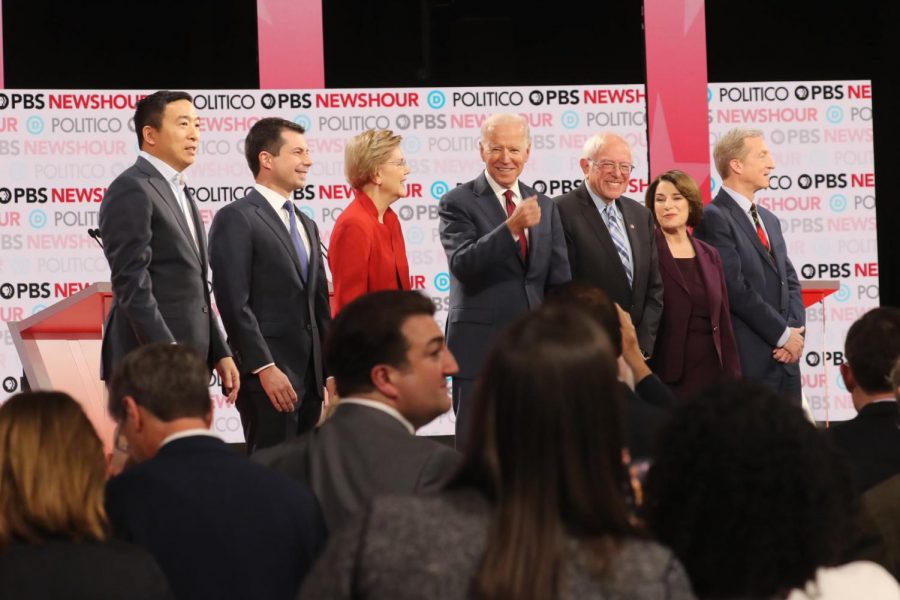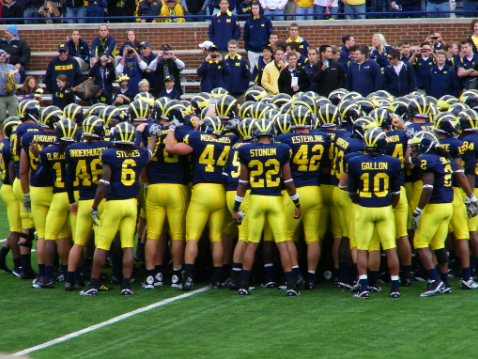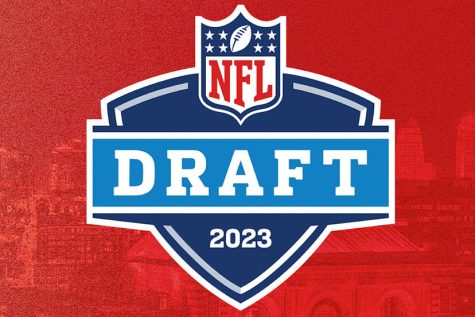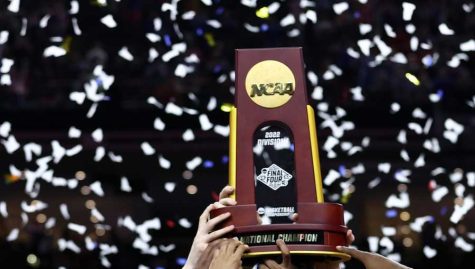Sharper Elbows on a Smaller Stage: the Sixth Democratic Debate
LOS ANGELES, CALIFORNIA—The gloves have come off in the Democratic primary. Seven presidential candidates gathered on Thursday, December 19, 2019, at Loyola Marymount University in Los Angeles, California for the sixth presidential debate for Democratic hopefuls: Joe Biden, Bernie Sanders, Elizabeth Warren, Pete Buttigieg, Amy Klobuchar, Andrew Yang, and Tom Steyer. Featuring the smallest stage in this primary cycle, down from a whopping twenty candidates split over two nights in the first and second debates, the sixth debate saw all the candidates receive more speaking time than before, and accordingly, more time to criticize rivals. Whereas in previous debates the frontrunners had largely shied away from attacking each other, this time they were far more willing to throw punches.
The debate comes at a critical juncture in the primary process: less than two months away is the all-important Iowa caucus, the first in the nation. Many campaigns have staked their futures on Iowa, especially the two Midwesterners, Buttigieg and Klobuchar, both of whom are counting on a strong showing to continue their bids. But Iowa is important for any campaign to win in order to gain momentum and media attention for the following primaries in New Hampshire, Nevada, and South Carolina. The candidates’ increased willingness to attack one another reflects this growing sense of urgency.
Already promising campaigns have folded or imploded; both former Representative Beto O’Rourke, widely touted after his upset near-win in Texas against Senator Ted Cruz in 2018, and California Senator Kamala Harris, who landed a memorable hit on Biden’s former racial stances in the June debate, have already bowed out of the race. Others failed to qualify for this debate: Julian Castro, Cory Booker, and Tulsi Gabbard, three candidates who made impressive showings in past debates, all missed the polling requirements, while billionaire Michael Bloomberg—currently in fifth place—skipped it entirely, as his campaign is entirely self-funded and thus does not meet the donor requirement. Even for the seven who made it to the stage, the political oxygen is getting scarce.
The Invincible Joe Biden
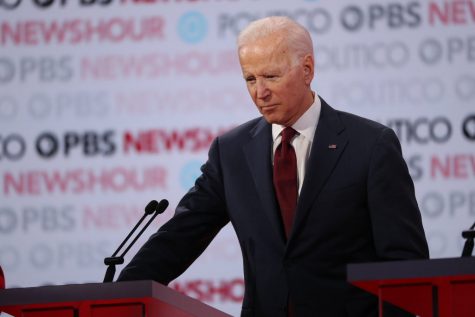
Former Vice President and longtime Delaware Senator Joe Biden entered the debate the clear frontrunner, having recovered from briefly being eclipsed by Elizabeth Warren in October. Campaigning on a “return to normalcy” after the Trump presidency, seeking to restore moral clarity to the presidency, Biden’s strategy this primary season has been clear: try to keep above the fray as his rivals fought each other and emerge as the consensus candidate. And in the December debate, he largely succeeded: while his opponents sniped at one another, Biden largely refrained from going on offense and instead stayed calm and measured, playing into his image as an elder statesman.
When asked about Obama’s recent comments that today’s problems were mostly caused by “old people, usually old men, not getting out of the way,” Biden coolly replied, “I’m going to guess he wasn’t talking about me”, sparring with moderator Tim Alberta. When asked about bipartisanship with Republicans, Biden likewise adopted a casual, almost dismissive stance: “The fact is we have to be able to get things done. And when we can’t convince them, we go out and beat them like we did in the 2018 election in red states and in purple states.”
Biden perhaps has reason to strut: his commanding lead with African-American voters, especially in the key primary state of South Carolina, has largely blunted his opponents’ inroads into his support among white suburban voters. Biden enjoys wide support among the black community, far surpassing both Deval Patrick and Cory Booker, the two black candidates in the field, in polling among African-Americans. Stemming from both his moderate, centrist stance and goodwill from the Obama era when Biden served as Vice President, this wall of support ensures his commanding lead over his nearest rivals, Bernie Sanders and Elizabeth Warren.
Nonetheless, Biden is the second oldest candidate in the field, at 77, and his tendency to make embarrassing gaffes (such as the infamous moment last debate when he said domestic violence was an issue they should keep “punching at…and punching at…and punching at”) could play into a larger theme of capability and age, which culminated in a memorable moment in the third debate when former Housing and Urban Development Secretary Julian Castro attacked Biden for “forgetting what [he] said two minutes ago” with regard to a question on health care. However, Castro failed to qualify for the debate and is reportedly close to dropping out, showing that attacking the presumptive frontrunner in such a fashion is not necessarily the best way forward.
A Surging Sanders
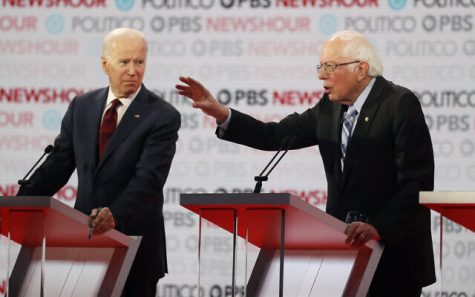
The standard-bearer for the left, Vermont senator Bernie Sanders is waging a grassroots campaign to dethrone Biden from his frontrunner status. Photo credits: Chris Carlson/AP.
Vermont Senator Bernie Sanders is no stranger to the role of the scrappy underdog. In the 2016 presidential primaries, the self-proclaimed democratic socialist waged an insurgency campaign against eventual nominee Hillary Clinton, knocking the process as a “coronation” and building a formidable grassroots coalition of supporters. In the 2020 primaries, Sanders returned vindicated by Clinton’s defeat, but once again found himself in the same role of fighting entrenched establishment candidates, this time in the role of Vice President Biden.
On the debate stage, Sanders sparred feistily with Biden, especially towards the end of the debate when the subject turned to healthcare. As Biden discussed the merits of his plan, Sanders raised his hand in objection, signaling to the moderators his criticism. Without turning to look at him, Biden snapped, “Hey, put your hand down for a second, Bernie, okay?” Sanders replied with a light quip: “Just waving to you, Joe, saying hello,” but the simmering tension between the two was clear.
Earlier, Sanders had also drawn a clear line between him and Biden with regard to foreign policy. As a member of the House of Representatives, Sanders had been the only person on the stage to vote against the Iraq War, and he criticized Biden for his role in the military disaster. When quizzed about his own vote for the War in Afghanistan, however, Sanders struck a more conciliatory note: “I was wrong,” he admitted bluntly, and credited Barbara Lee, a Representative from California, for being the only Congressperson farsighted enough to vote against the war.
Prior to the October debates, Sanders’s campaign had come dangerously close to disaster when it was revealed the 78-year-old senator—Sanders is the oldest candidate in the field—had suffered a minor heart attack and needed hospitalization. Since then, however, Sanders has redoubled his efforts and staged a remarkable comeback. A key endorsement from New York Congresswoman Alexandria Ocasio-Cortez, a rising star within the Democratic party, added vibrancy to his campaign and galvanized enough support to help his campaign eclipse Warren after the night of the November debate to recapture the number-two slot in the polls. Bernie now has a clear path to the nomination, poised to perform well in both Iowa and New Hampshire and to carry on that momentum all the way to the convention.
Warren on the Warpath
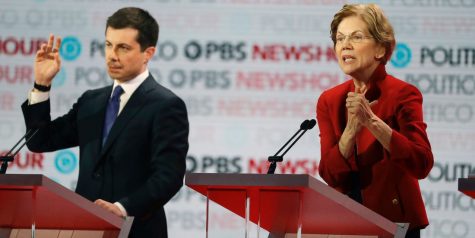
Since she briefly overtook Biden as the frontrunner in the polls in mid-October, Massachusetts Senator Elizabeth Warren has been under siege from both wings of the Democratic Party, both progressive and moderate. In October, she was attacked by six or seven different candidates from various directions, with former Texas Congressman Beto O’Rourke (who has since dropped out) characterizing her wealth tax plan as “punitive” while Minnesota Senator Amy Klobuchar called her agenda a “pipe dream”. Perhaps most memorably, South Bend Mayor Pete Buttigieg called her dubious reply to the question of whether or not taxes would go up for the middle class under her healthcare plan a “yes or no question that didn’t get a yes or no answer”.
Warren has since clarified that her healthcare plan would not raise taxes on middle-class families, a position that her chief rival for the role of standard-bearer for the left, Vermont Senator Bernie Sanders, has not taken. Instead, Warren’s plan will be paid for by raising taxes on the wealthy, closing tax loopholes, and pursuing immigration reform. After unveiling her healthcare plan, which pushed back her promised agenda of “Medicare for All” to her third year in office instead of her first, Warren has also suffered criticism from the leftist flank of the party. In particular, Sanders has criticized her plan for potentially having a “negative impact on creating jobs” and touted his own plan as being “more progressive.” Warren’s poll numbers have fallen since then, and she was soon eclipsed by Sanders in the days after the November debate.
Evidently, Warren learned from the setback, and she took a different strategy in the December debate: to go on the attack. Warren began the second half of the debate with a string of attacks on Mayor Pete Buttigieg, who has cut into her support among college-educated whites, describing how “the mayor just recently had a fundraiser that was held in a wine cave full of crystals and served $900 a bottle wine…We made the decision many years ago that rich people in smoke-filled rooms would not pick the next president of the United States. Billionaires in wine caves should not pick the next president of the United States.”
Buttigieg rebutted by pointing out how he is “literally the only person on this stage who’s not a millionaire or a billionaire” and claimed that she was issuing a “purity test” that she herself could not pass. Warren frigidly responded, “I do not sell access to my time. I don’t do call-time with millionaires and billionaires.” This ties in with the crux of Warren’s message: what she refers to as “endemic corruption” in Washington. Warren has released the most comprehensive anti-corruption plan among the Democrats to date, including a lifetime lobbying ban for high-ranking government officials, requiring the release of tax returns from presidential and vice-presidential candidates, and giving more disciplinary authority to judicial ethics watchdogs. It remains to be seen whether this laserlike focus on corruption will be enough to claim the nomination in the Trump era.
A Bullseye on Buttigieg’s Back
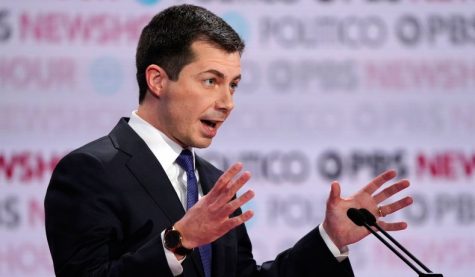
Two-term South Bend, Indiana Mayor Pete Buttigieg entered Los Angeles surely with trepidation, wondering what surprises his opponents had in wait for him. Since Buttigieg had surged ahead in a November poll conducted by CNN and the Des Moines Register in the key early primary state of Iowa, which placed him at 25%—a full nine points ahead of his closest rivals—he has been viewed as more of a threat by his rivals, especially Elizabeth Warren and Amy Klobuchar, both of who draw from the same college-educated white vote that Buttigieg has been gathering himself.
As it turned out, Warren and Buttigieg sparred extensively over fundraising, but Klobuchar landed perhaps the most meaningful blow on the mayor: hitting him for his inexperience. Buttigieg is the youngest candidate in the field, at age 37, and has never held nationwide or even statewide office. In the last debate, he defended his inexperience by pointing out how there was a collective “100 years of Washington experience” on stage, yet no real progress had been made for a generation. Evidently the remark had needled Klobuchar, as she resurrected the comment into a blistering attack: “While you can dismiss committee hearings, I think this experience works…I have not denigrated your experience as a local official… I think you should respect our experience when you look at how you evaluate someone who can get things done.”
Buttigieg rebutted her insinuations about his lack of experience, especially winning elections, by pointing out how he had won his mayoral election “with 80 percent of the vote as a gay dude in Mike Pence’s Indiana”. Klobuchar riposted with a cutting jab, referencing Buttigieg’s loss in the 2010 state treasurer race: “If you had won in Indiana, that would be one thing. You tried, and you lost by 20 points.” Despite the stinging blow, however, Buttigieg remained calm throughout the exchange, cementing his image as the cerebral whiz kid.
Once positioning himself as a liberal, Buttigieg has shifted his strategy over the last few months to leaning more towards centrism, positioning himself as a younger, fresher alternative to Biden. So far this gambit has exceeded all expectations—initially considered a longshot, the mayor who nobody had heard of the year before is now polling first in Iowa and second in New Hampshire.
A Comeback for Klobuchar?
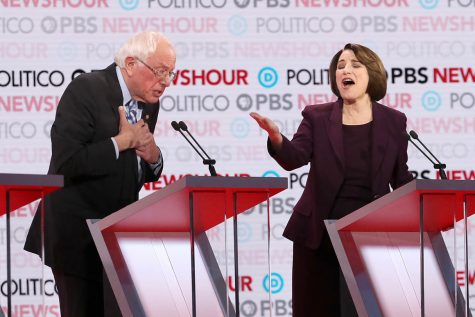
Outside of the four frontrunners (Biden, Sanders, Warren, and Buttigieg), there has long been a second “tier” of candidates struggling to gain traction and languishing in low single digits. The most likely of these to break out is undoubtedly Minnesota Senator Amy Klobuchar. For months, Klobuchar has hovered along at around 2-3%, consistently qualifying for debates but nothing outstanding. She also suffered from lackluster debate performances, especially in the November debate, when she appeared to have been trembling either from cold or from nerves—which Saturday Night Live swooped on for the debate sketch the following weekend, featuring Rachel Dratch as a violently shaking Klobuchar.
December, however, featured a more confident, relaxed Klobuchar, scoring against Buttigieg on experience, and also disagreeing with Sanders on trade. Sanders had criticized Trump’s renegotiated trade deal with Canada and Mexico, the USMCA (United States-Mexico-Canada Agreement), complaining that it was only incremental improvement over NAFTA (the North America Free Trade Agreement) and did not do enough to protect workers. Klobuchar, however, seized the opportunity to emphasize her dedication to the key voting region of the Midwest; declaring that for farmers it was a good deal, and her intent to vote for the trade deal.
Throughout the debate, Klobuchar leaned heavily on her Midwestern credentials, especially on the issue of climate change. Discussing the unprecedented flooding there recently, Klobuchar declared that “It’s not fly-over country to me, I live there…When you make the case like that, you bring in the Midwestern votes, you win big, and I think the best way to do it is by putting someone at the top of the ticket who’s from the Midwest.” Hillary Clinton barely won Minnesota by a margin of 1.5% in 2016, but in her 2018 re-election Klobuchar scored a double-digit win, further lending credence to her argument.
Klobuchar has staked it all on Iowa, which borders her home state. So far, Buttigieg has largely edged her out in the state, but in a recent statewide Emerson poll Klobuchar was polling as high as 10%. A surprise fourth-place finish in Iowa, edging out any of the frontrunners, would almost certainly displace them and ensure serious consideration of Klobuchar as Vice President or even the coveted presidential nomination itself.
Shifting Strategy for Yang
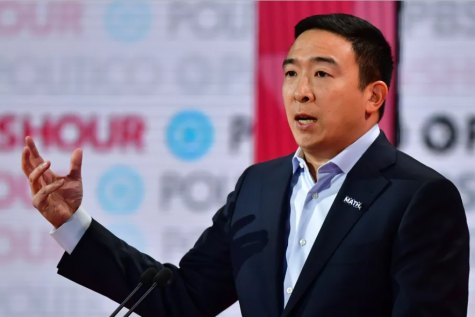
It is remarkable that entrepreneur Andrew Yang, who has never served in any elected office before, outlasted big names in the primary like O’Rourke and Harris; for months pundits have dismissed his candidacy as a gimmick, or a curiosity, perhaps not unlike that of spiritual guru Marianne Williamson, currently polling at 0.3%. Instead, Yang has thrived, appearing onstage with a none-too-serious demeanor—no tie—and sporting his trademark MATH (Make America Think Harder) pin on his lapel instead of the traditional flag pin.
Yang’s signature policy is the Universal Basic Income (UBI), which he rechristens the “Freedom Dividend”, giving $1,000 tax-free per month to every adult citizen in the United States. This bold plan is actually not that recent; it was first conceived in the 1960s as a potential solution to poverty, and has been tested in Canada. Far from promoting indolence and unemployment, as many hypothesized, only about 1% of participants dropped out of job, mainly to either take care of children or to complete school. Universal Basic Income aims primarily to alleviate poverty; as Yang put it, “We have to stop confusing economic value with human value”.
Throughout the debate, Yang referred frequently to his flagship proposal, even on seemingly unrelated topics like race and gender. With Harris out of the race and Booker and Castro both failing to qualify, Yang, who is Taiwanese-American, was the only candidate of color on the stage, something he called “both an honor and disappointment.” He attributed this phenomenon to the fact that only 5% of American voters donate to political campaigns, because they lack disposable income; UBI, he argued, would give minority voters more financial and thus political power. Later, in a pointed aside at Buttigieg, Yang made the same point with female candidates in addition to candidates of color: with support from the public through UBI, “they don’t have to go shake the money tree in the wine cave.”
Since the beginning of his campaign, however, Yang has been plagued by conflicts with the media, who he pointed out had repeatedly excluded him from graphics and gave him few questions during debates. For example, in the first June debate, he had less than three minutes of speaking time. The sixth Democratic debate was better—Yang had just over ten minutes—but it still was noticeably less compared to the nearly twenty minutes that Sanders, Klobuchar, Warren, and Buttigieg had. This can partially be attributed to Yang’s natural reticence and unwillingness to interrupt his fellow candidates, but media bias cannot be ignored as a factor, even as Yang continues to rise in the polls.
Steyer, the Other Billionaire
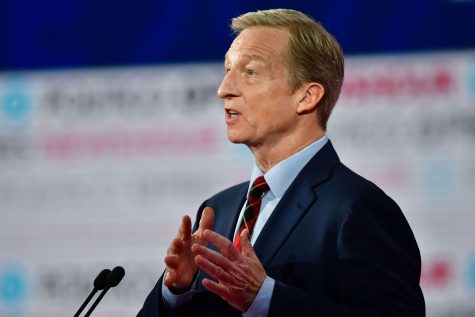
The lowest-polling of the seven candidates to make the stage was billionaire Tom Steyer, currently hovering at around 1.4%, lower than both Booker and Gabbard (at 2.5% and 1.8%, respectively). However, Steyer was able to qualify through bombarding the early states of Iowa, New Hampshire, South Carolina, and Nevada with advertisements from his endless personal wealth of $1.6 billion. This led to accusations of “buying his way into the debate”, but Steyer has rebutted by pointing out his own resume of founding Need to Impeach, an organization dedicated to impeaching President Trump, as well as funding climate initiatives.
On the debate stage, however, Steyer has failed to live up to those high aspirations. Since he first started participating in the October debates, he has turned in numerous lackluster performances, failing to really articulate any reason why Americans should support him over his rivals. When probed about his views on Elizabeth Warren’s wealth tax, Steyer merely replied that he largely agreed with it. The only real reason he put forth why he was more suited for the nomination than his rivals was his experience as a businessman, claiming that his “experience building a business, understanding how to make that happen means I can go toe to toe with Mr. Trump and take him down on the economy and expose him as a fraud and a failure.”
However, in that regard, Steyer is being quickly eclipsed by Michael Bloomberg, former New York mayor, who has an even larger net worth—$56 billion—and has been pumping even more money in advertising. Bloomberg only jumped into the race in late November, but he has already spent $120 million in advertising across the nation, rapidly edging his way up to fifth place with 4.8% support. If Steyer’s main selling point is having more money than Trump, or being able to blast states with advertisements funded from his own pockets, then in both of those regards Bloomberg can handily outcompete him.
Steyer’s greatest chance to make a difference then lies in his dedication to climate change. After Washington Governor Jay Inslee dropped out of the race over the summer, Steyer has become the only candidate to declare that his number one priority is climate change. As Steyer argued, “our biggest crisis is our biggest opportunity and if we don’t declare a state of emergency on day one, I don’t understand how we go to the people around the world to lead the coalition that has to happen and that only America can lead.” However, even in this regard he is finding it difficult to stand out amongst his rivals, who are mostly united in their consensus that climate change is a crucial issue that needs to be addressed.
Summary
The Democratic primary field is still largely in flux; a record 15 candidates are still competing for the nomination, although only seven of them were able to participate in December’s debate. Biden, Sanders, Warren, and Buttigieg jostle each other for the top spot, constantly swapping spots in Iowa and New Hampshire. Klobuchar and Yang are each trying to crack the top tier, while Steyer and Bloomberg’s bottomless pockets continue to blast voters with advertisements. Gabbard, Booker, and Castro are all on the outside looking in, but each still stands a chance to qualify for January, right before the primaries actually begin on February 3 in Iowa.
There is an old adage in horseracing: expect the unexpected. As 2019 draws to a close, the equal applicability of that statement to politics as well is more apparent than ever. Pundits began the year predicting the final showdown would be between O’Rourke and Harris, but both of them have already floundered and fallen; Biden, who everyone expected to collapse sooner or later, is still steadily cruising along as the frontrunner, while Warren’s summer surge has nearly totally receded. An unpredictable year in politics closes, and another opens—2020, when whoever wins the Democratic primary must face off against President Trump.

